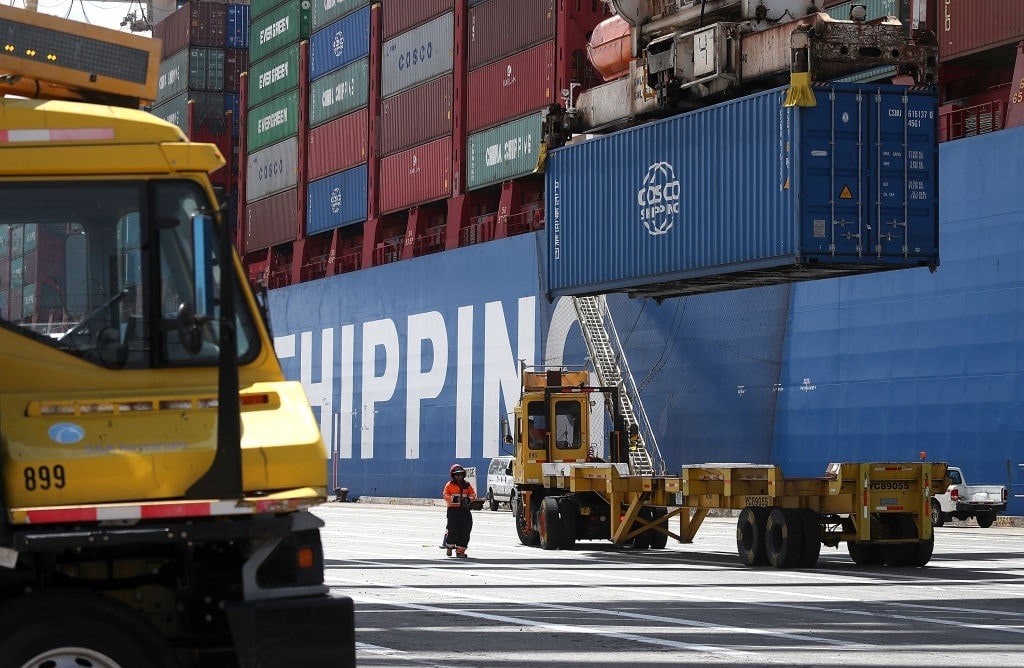Biden’s “dictator” remark is the defining headline of the critical meeting.
President Joe Biden and Chinese leader Xi Jinping held their first face-to-face meeting in a year during the APEC Summit in San Francisco, CA. The two men engaged in “blunt” talks and ironed out some measures related to climate change and narcotics. But the highlight of the powwow will be Biden referring to Xi Jinping as a dictator in off-the-cuff remarks to the press, which will force administration officials to likely walk back his comments. As another gaffe will define the “productive” meeting, this could have been a tremendous opportunity for Biden since there is big economic trouble in China.
APEC Summit and Economics
 Heading into the APEC Summit meeting, Xi Jinping likely wanted to showcase a solid post-crisis Chinese economy. Instead, the foreign dictator stood in front of his US counterpart in a weakened financial position. President Biden could boast about a 4.9% GDP growth rate in the third quarter and an unemployment rate below 4% (of course, it is unlikely anyone dug deeper into the details). By comparison, China is struggling to resuscitate its pre-pandemic dominance as conditions turn sluggish.
Heading into the APEC Summit meeting, Xi Jinping likely wanted to showcase a solid post-crisis Chinese economy. Instead, the foreign dictator stood in front of his US counterpart in a weakened financial position. President Biden could boast about a 4.9% GDP growth rate in the third quarter and an unemployment rate below 4% (of course, it is unlikely anyone dug deeper into the details). By comparison, China is struggling to resuscitate its pre-pandemic dominance as conditions turn sluggish.
Since the beginning of the month, the data have been disappointing. Exports plunged at a worse-than-expected 6.4% year-over-year in October, narrowing its trade surplus to $56.53 billion. The services sector flirted with shrinking activity, complementing a manufacturing industry mostly stuck in contraction territory this year. China’s economy slipped into deflation as domestic demand has been anemic. The unemployment rate is 5%, and youth joblessness is at an all-time high. Even credit conditions have tightened despite fiscal and monetary policy encouraging banks to lend more to households and businesses.
Over the last 12 months, the US administration has engaged in a de-risking initiative. White House officials have been diversifying their trading partners through the Indo-Pacific Economic Framework, or IPEF. This means that America will not solely depend on Beijing for trade and instead work with India, Vietnam, Singapore, and other countries in the region. In the weeks leading into the APEC Summit, Treasury Secretary Janet Yellen has insisted that the United States is not looking to decouple from China.

(Photo by Justin Sullivan/Getty Images)
Has this perturbed the Chinese Communist Party? It is unclear what Xi Jinping and his merry band of pseudo-communists are thinking about these efforts. Any dealer would be angry that his or her junkies are trying to get the monkeys off their backs and quit cold turkey. Of course, despite President Biden showering private and overseas companies with trillions of taxpayers’ dollars, the US imports plenty of goods and services from Beijing, with the trade deficit already above $200 billion in the first nine months of 2023.
Since former President Donald Trump’s trade war, reshoring and repatriating have been on an upward trend. Additionally, foreign direct investment in China has been crashing this year as more US corporations ship their profits back to the Land of the Free and Home of the Brave. Xi Jinping has been trying to slow these developments by ensuring US businesses can move their capital freely and are not under threat by the government. However, be it tariffs or currency interventions, companies are apprehensive about sticking around. This is why Vanguard shuttered its offices in China.
Why should this matter to President Biden? China’s crisis is America’s opportunity. For years, Beijing has maintained a stranglehold on the United States economy. But everything that has transpired, from the collapse of the critical property sector to shrinking manufacturing activity, could have given the White House the upper hand in talks.
At the same time, considering the administration’s repeated foreign policy blunders, President Biden may have once again stumbled (literally and figuratively).
We’ll Always Have APEC
Over the last year and change, the argument could be made that China has been the one to decouple from the US. The country has bolstered the yuan’s presence in cross-border transactions by engaging in bilateral trade settled in local currencies. China has reduced its holdings of Treasurys by a fifth to $805 billion. Chinese leaders led the campaign to expand the BRICS (Brazil, Russia, India, China, and South Africa) organization to counter Western hegemony on the international stage. After a decade, China is revamping its Belt and Road Initiative (BRI) to mitigate risk, reduce exposure to ESG (Environmental, Social, and Governance) investments, and adjust financing terms as developing borrowers downgrade their optimistic view of the country. Despite a slowing economy, the Chinese have been stockpiling enormous amounts of gold, crude oil, natural gas, copper, and other commodities.
President Biden claimed that four hours of talks with his Chinese counterpart resulted in “real progress.” The results of the Biden-Xi meeting might not be observed until next year’s APEC summit in Peru. Will the two sides revitalize their partnership or go their separate ways? Maybe it is a case of whoever is victorious, the world loses. Of course, the tightly scripted diplomatic affair might end in disaster and trigger Chinese backlash over Biden’s “dictator” remarks. Even when the US president could obtain a decisive win over America’s fiercest rival, he trips over himself.

